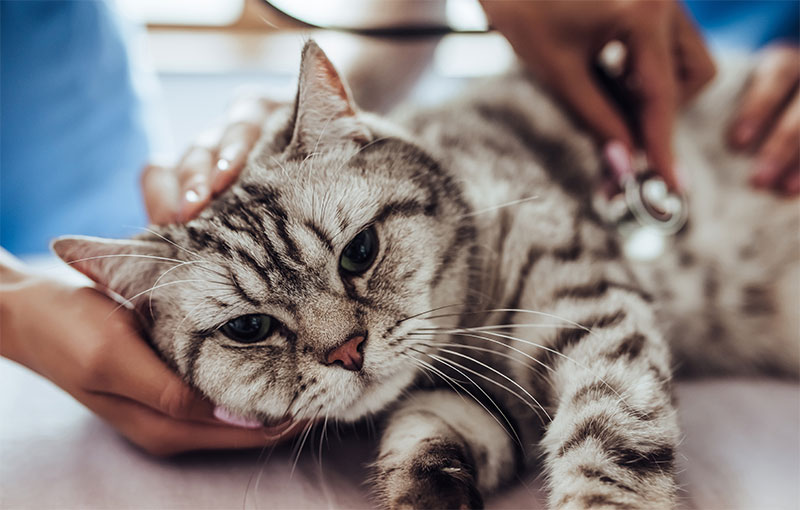Common Behavioral Problems in Cats and How to Address Them
We love felines for their independent (although sometimes snuggly) natures and their uniquely fun personalities. Although they’re a joy to have around, an untrained cat can present a variety of problems and/or challenges inside the house.


Common Cat Behavioral Issues
- Aggression
- Excessive vocalization (yowling and hissing)
- Litter box troubles
- Territory marking
- Scratching the furniture
- Jumping onto the table or countertops
- Drinking from your glass
- Keeping you up at night
- Knocking everything over
- Wandering or escaping the house
- Eating houseplants
- Napping on clean laundry
6 Ways to Address Your Cat's Behavior Problems
1. Know What Constitutes an Emergency
The first and most important thing to know about behavior issues in cats is that several of them can actually be signs or symptoms of an underlying health problem. For example, cats often experience litter box troubles, vocalize excessively, and become aggressive as a result of not feeling well. If your cat is having behavior issues, the first thing you should do is schedule a veterinary checkup.
2. Provide Territory Markers
Put up a scratching post where your pet can get its scratching fix.
3. Offer an Alternative Perch
Some cats feel safer above the ground. Installing cat perches in your home means they’ll have an even better observation point than your kitchen countertop.

4. Make Off-Limits Objects/Places Less Attractive
Spray furniture with cat deterrents or hang pieces of foil from your houseplants.
5. Work on Positive Reinforcement, Marker Training
Cats can be trained, using positive reinforcement with training treats and a clicker. Click to mark your pet’s desired behavior and then reward them with a treat.
6. Cat-Proof Your Home
Although behavioral issues can be an annoyance or even a problem for pet owners, part of living with a cat is dealing with their quirky personalities. Make sure your home is a safe environment where your cat can be curious and safe.

Ease Your Cat's Health-Related Behavior Issues With Compounded Pet Meds
Behavior problems in pets can sometimes be the result of an underlying illness, injury, or health problem. If your cat has been diagnosed and is in need of medications, we encourage you to talk with your veterinarian about the different options available in terms of the form your pet’s medications can come in. At VetMedics Compounding Pharmacy, we specialize in providing a wide array of pet medications in a variety of easy-to-administer forms and flavors. To learn more, we welcome you to contact us or talk with your veterinarian.
 ACCOUNT LOGIN
ACCOUNT LOGIN ACCOUNT SIGN-UP
ACCOUNT SIGN-UP





 CLINIC LOGIN
CLINIC LOGIN